- Java
- 初识Java的main方法
- 用Sublime Text3编译运行
- 如何编译
- 程序运行原理
- 程序需注意的问题
- 没有out文件
- args
- 注释与打印
- 变量与类型
- 类型特性
- 变量类型
- 常量
- 类型转换与整型提升
- 运算符
- 逻辑控制
- jdk
- idea
- 2、设置
- 快捷键
Java
Java - 爪哇岛 盛产咖啡
Java之父 —— 高斯林
Write Once. Run anywhere.
一次运行,到处运行
环境:
JDK - Java开发者工具
IDEA - 集成开发环境
初识Java的main方法
public class HelloWorld {
public statci void main(String[] args) { // Java中main函数的固定写法
System.out.println("hello");
}
}

用Sublime Text3编译运行
如何编译
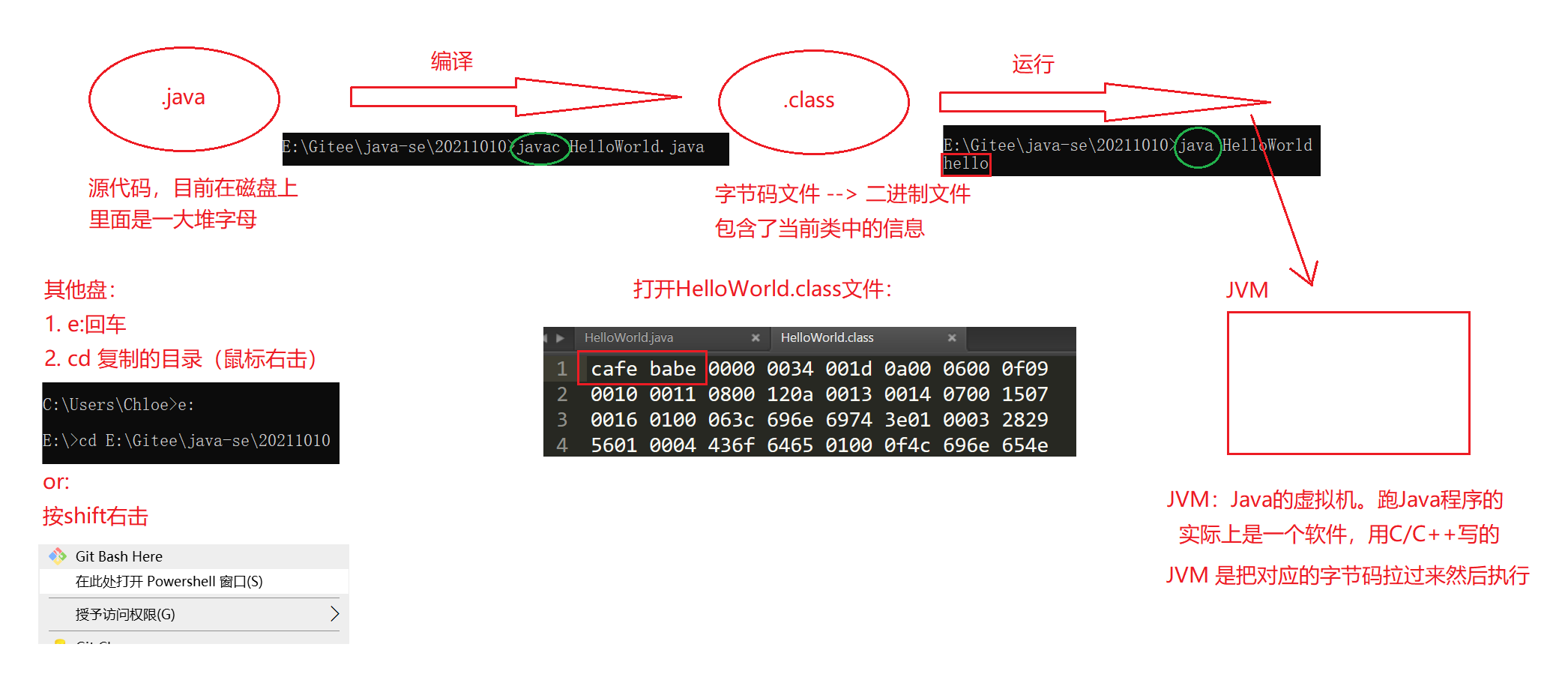
程序运行原理
JDK:Java开发者工具
JRE:Java运行环境
JVM:Java虚拟机
一次编译,到处运行,只要你安装了JDK
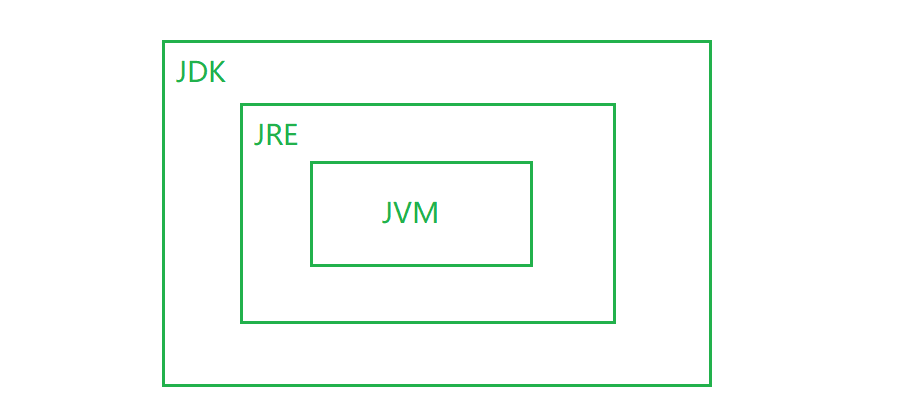
程序需注意的问题
1、每次写完代码,必须保存,然后重新编译!!
2、如果这个类是public修饰的,类名需要和文件名一致
`public class HelloWorld`
3、方法需在类里 --> 类(方法)
4、不是一个文件对应一个字节码,而是一个类对应一个字节码
好处:用到哪个类,加载哪个类,而不是全加载!
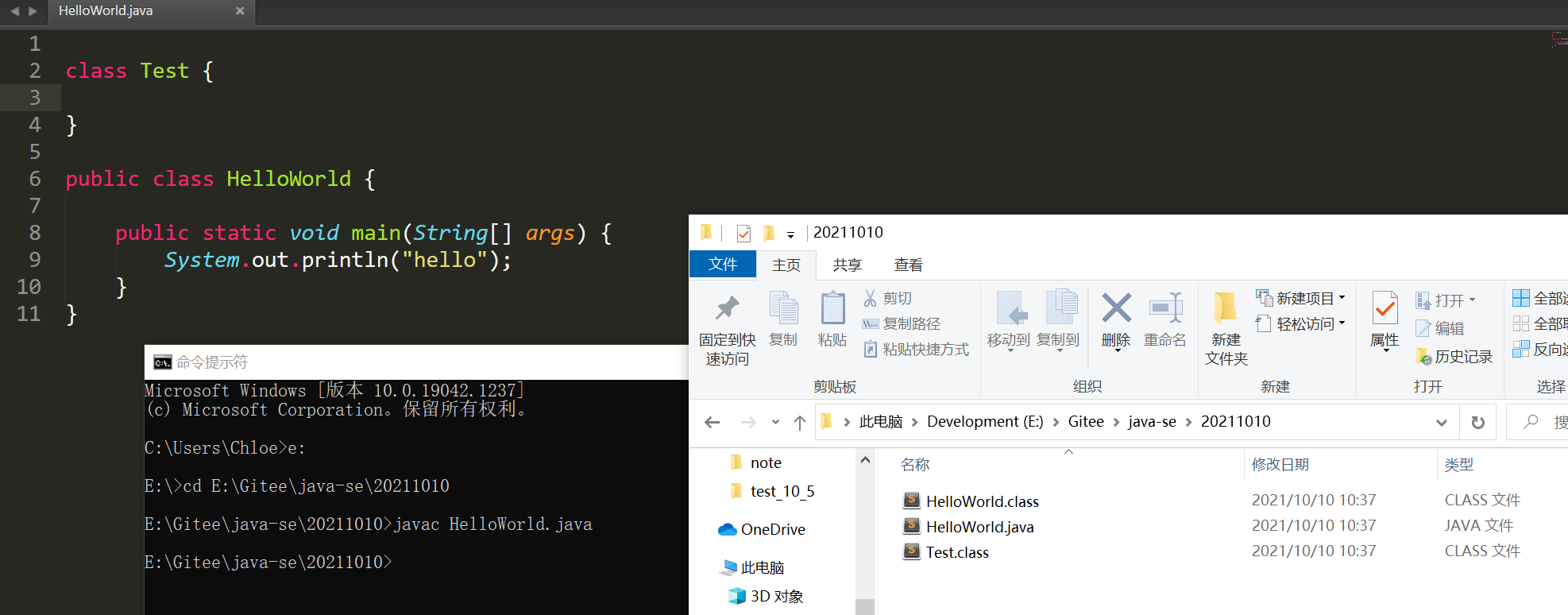
没有out文件
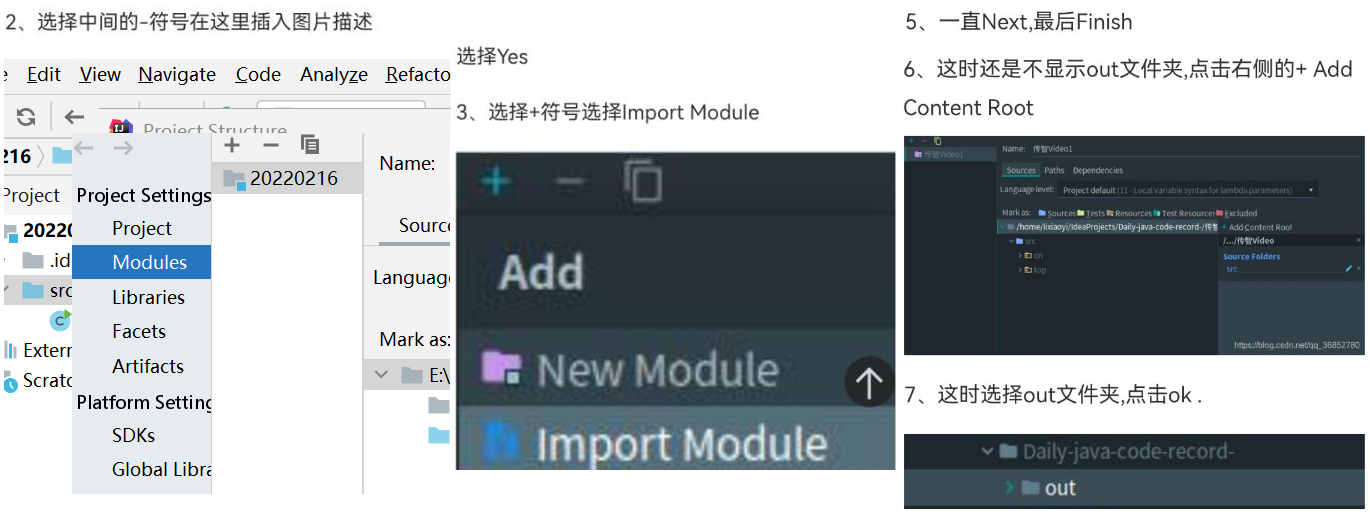
args
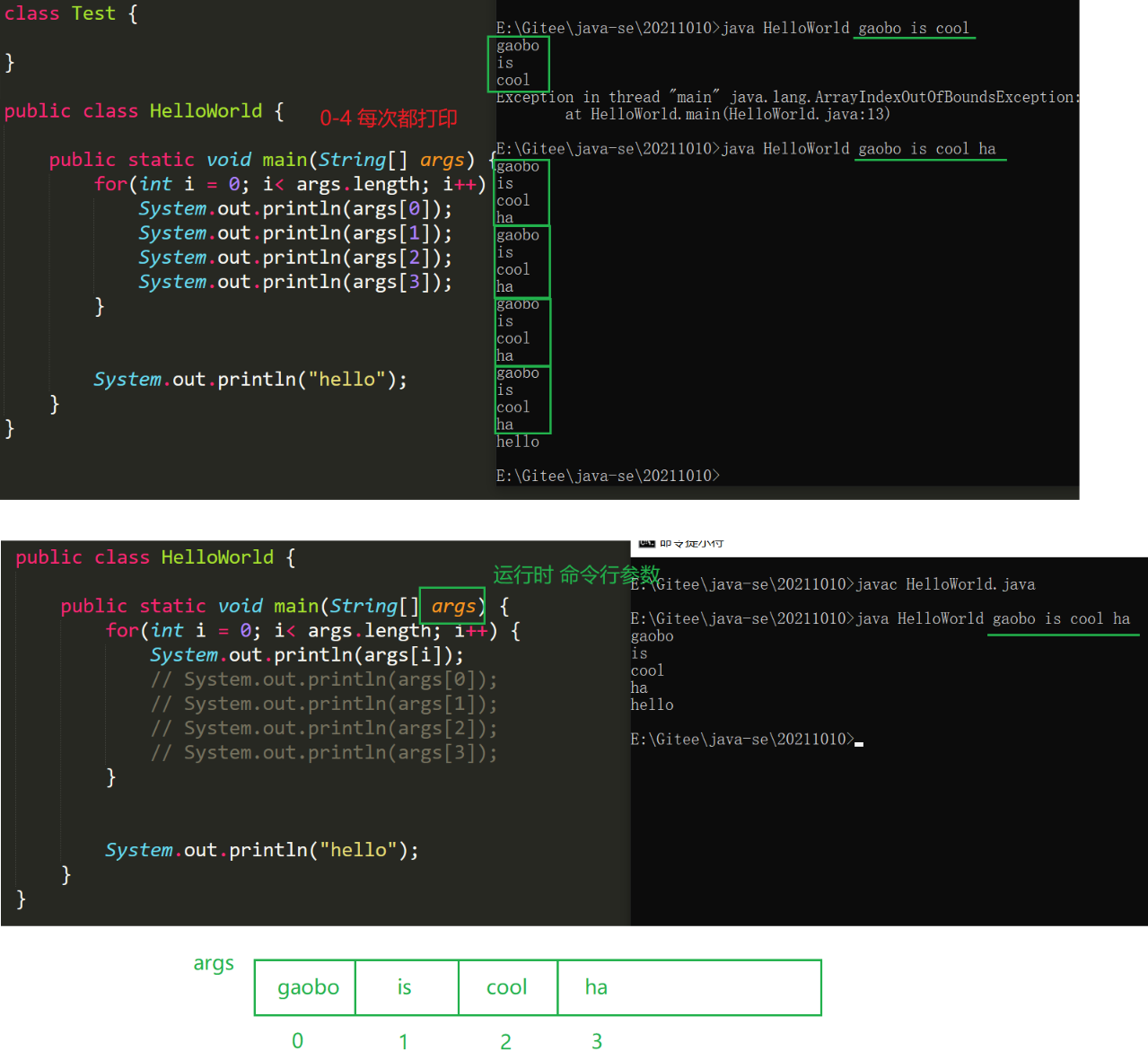
数组越界:
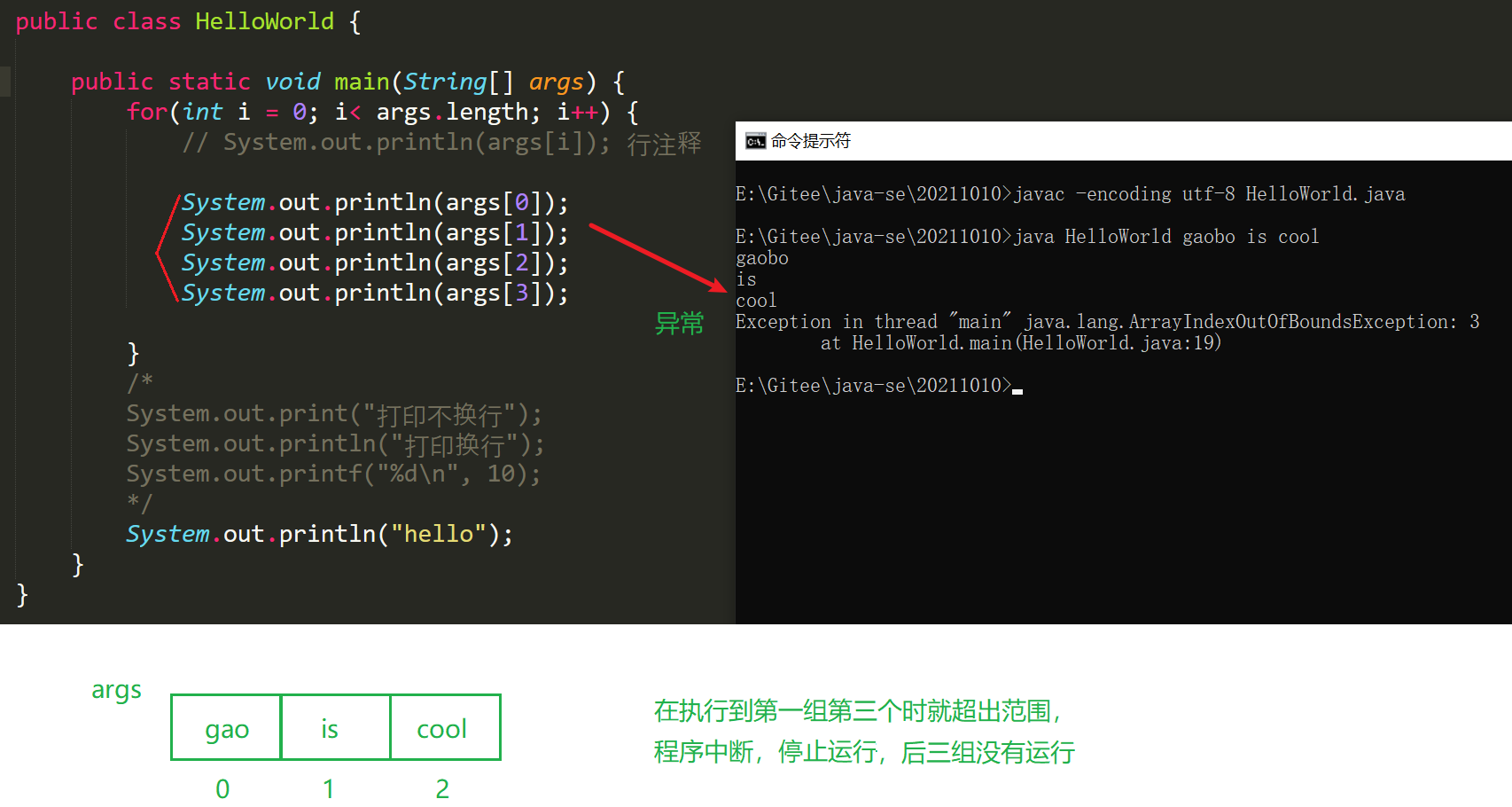
注释与打印
三种注释方法:
/**
* 文档注释 --> 类或方法的前面
*/
public class HelloWorld {
public static void main(String[] args) {
for(int i = 0; i< args.length; i++) {
// System.out.println(args[i]); 行注释
/* 块注释
System.out.println(args[0]);
System.out.println(args[1]);
System.out.println(args[2]);
System.out.println(args[3]);
*/
}
System.out.println("hello");
}
}
运行此代码产生错误问题:
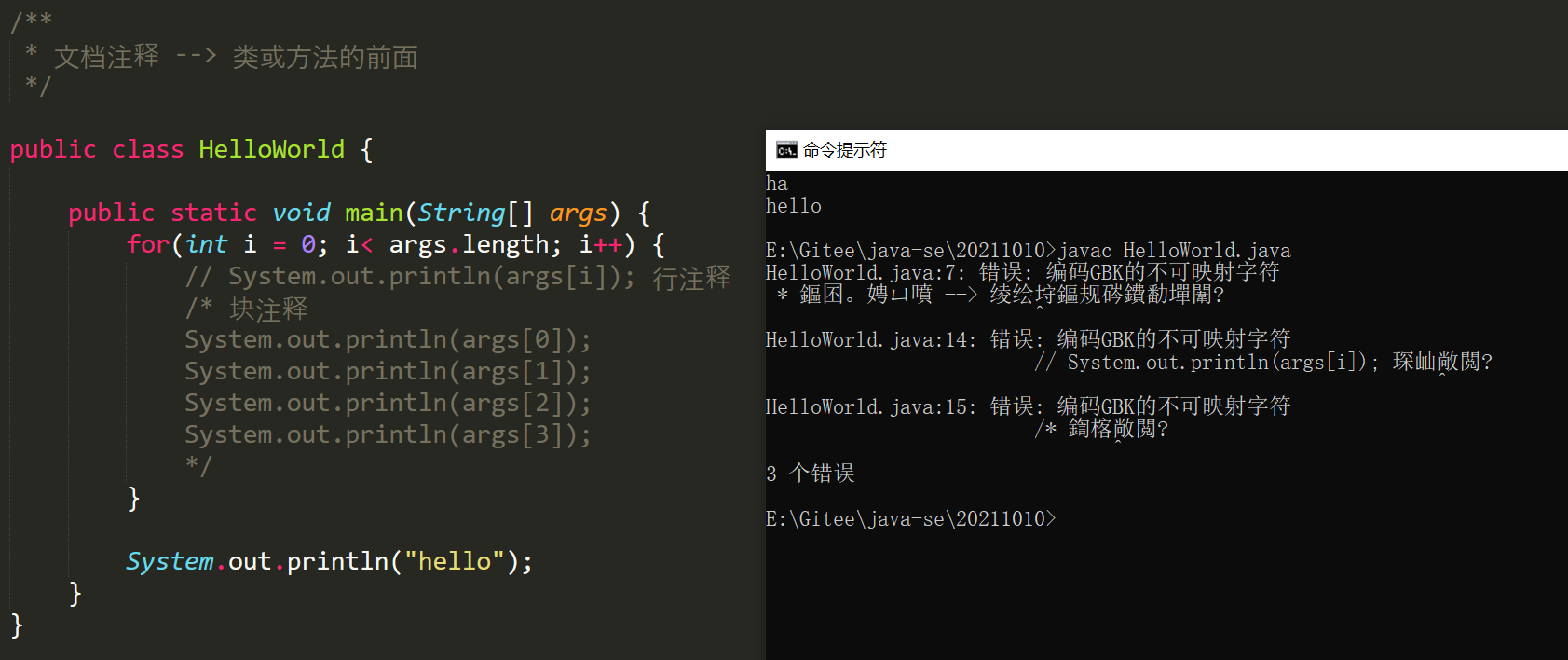
javac 在编译的时候,默认用GDK格式编译代码,
解决方法:javac -encoding utf-8 HelloWorld.java
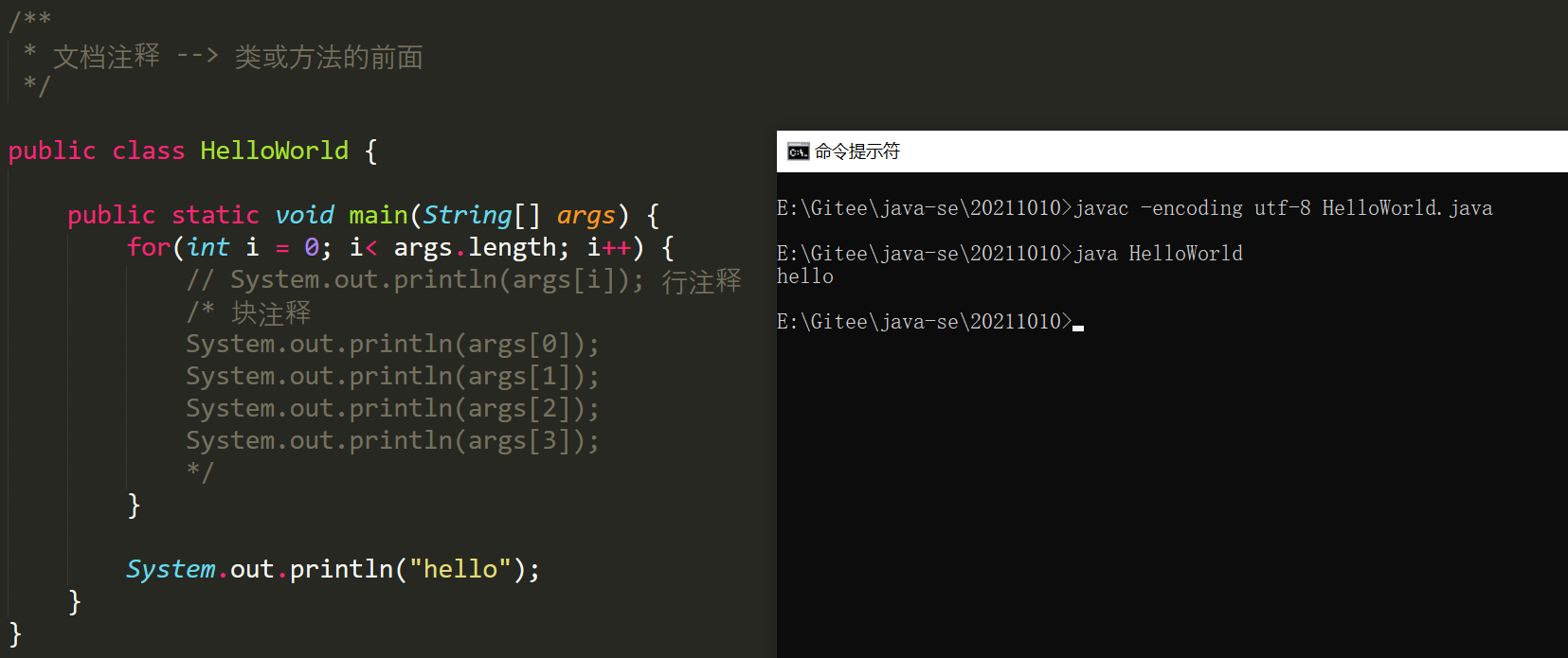
打印方法:
public class HelloWorld {
public static void main(String[] args) {
for(int i = 0; i< args.length; i++) {
System.out.print("打印不换行");
System.out.println("打印换行");
System.out.printf("%dn", 10);
// 打印不换行打印换行
// 10
}
}
变量与类型
类型特性
1、int 多少字节?
int 4字节,无关多少位系统 — 可移植性高
Linux Mac Win 可要有字节码文件,就能编译 — 跨平台
public class HelloWorld {
/**
* int 4字节
* @param args [description]
*/
public static void main(String[] args) {
int a = 10;
}
}
2、有无符号?
Java 中的 int,没有所谓的无符号类型,统一是有符号的
public class HelloWorld {
public static void main(String[] args) {
int a = 10;
System.out.println(a); // 10
}
}
3、取值范围?
-
最高位为有符号位,剩余31位是数值位
这31位可表示 2^31 = 2,147,483,648 个数值
-
int 取值范围:-2^31 -> 2^31-1
-2147483648 — 0 — 2147483647
public class HelloWorld {
public static void main(String[] args) {
int a = 10;
System.out.println(a); // 10
// Integer - 包装类 是int的plus版本
System.out.println(Integer.MAX_VALUE); // 2147483647
System.out.println(Integer.MIN_VALUE); // -2147483648
}
}
变量类型
1、变量命名
小驼峰:以(数字 字母 下划线 美元符号)组成,不能以数字开头
public class HelloWorld {
public static void main(String[] args) {
int maxMax = 10;
int max_num = 10;
int $max3num = 10;
int ___________ = 100; // 可以,但不要用
System.out.println(___________); // 100
int 钱 = 300;
System.out.println(钱); // 300
// Unicode字符集:包含中文,固可使用
}
}
2、变量能否不初始化?
Java 比较安全,如果不初始化就使用,编译器就会报错,不是警告!
int num; // err
3、long 长整形
8bit 64bit
long 的最大最小值:-2^63 2^63-1
取值范围:
public class HelloWorld {
public static void main(String[] args) {
long a = 10L;
System.out.println(Long.MAX_VALUE); // 9223372036854775807
System.out.println(Long.MIN_VALUE); // -9223372036854775808
}
}
4、双精度浮点型变量
注意问题1:

注意问题2:
小数本身是没有一个精准的数字的,只能精确到几位
public class HelloWorld {
public static void main(String[] args) {
double num = 1.1;
System.out.println(num*num); // 1.2100000000000002
}
}
5、单精度浮点型变量
public class HelloWorld {
public static void main(String[] args) {
float f = 10.5;
System.out.println(f);
// 报错: 不兼容的类型: 从double转换到float可能会有损失
// 正确写法:float f = 10.5f;
}
}
6、 字符类型变量
public class HelloWorld {
public static void main(String[] args) {
char ch1 = 'a';
System.out.println(ch1); // a
char ch2 = '数';
System.out.println(ch2); // 数
}
}
汉字2字节,代码无问题,由此可得 char 区别于C语言是2字节
在C语言中使用ASCII 表示字符,在Java 中使用Unicode 表示字符,表示的字符种类更多,包括中文
7、 字节类型
public class HelloWorld {
public static void main(String[] args) {
byte b = 10; // 1字节 相当于C中的char
System.out.println(b1); // 10
}
}
字节类型取值范围:
public class HelloWorld {
public static void main(String[] args) {
byte b1 = 130; // err
System.out.println(b2); // 错误: 不兼容的类型: 从int转换到byte可能会有损失
byte b2 = 127; // ok
}
}
1字节 --> 8bit 最高位符号位,7位数值位
-2^7 - 2^7-1
-128 - 127
8、短整型
public class HelloWorld {
public static void main(String[] args) {
short s = 10; // 2字节
// -2^16 - 2^16-1
}
}
9、布尔类型
在Java中,boolean只有两种取值,true真,false假
注:在JVM的规范中,没有规定布尔类型的大小,
布尔类型变量不能±,因为不是数值
public class TestDemo {
public static void main(String[] args) {
boolean flag = false;
System.out.println(flag);
}
}
10、字符串类型-(引用类型)
public class TestDemo {
public static void main(String[] args) {
String str = "hello";
System.out.println(str);
}
}
注意问题:
public class TestDemo {
public static void main(String[] args) {
System.out.println("hello"+"world"); // helloworld
System.out.println("hello"+10+20); // hello1020
// 其他数据类型和字符串使用加号拼接,结果就是一个字符串
System.out.println(10+20+"hello"); // 30hello
System.out.println("hello+(10+20)"); // hello+(10+20)
System.out.println(10+""+20+"hello"); // 1020hello
System.out.println("a = "+10+", b = " +20); // a = 10, b = 20
/*
* 整数 byte short int long
* 浮点数 float double
* 基本数据类型 字符 char
* 布尔 boolean
* 数据类型
* 引用类型 String 数组 类 接口 枚举……
* */
// 转义字符
System.out.println(""bit""); // "bit"
// 水平制表符t - Tab键
}
}
常量
public class TestDemo {
public static void main(String[] args) {
// 常量:
// 1.字面值常量
// 2.final修饰的变量 ->常量
// 程序编译时,就已经确定值
// 只能初始化一次
// 11、变量:
// 程序运行的时候们可以改变的量
final int a = 10;
// a = 20; // err
}
}
类型转换与整型提升
强制类型转换
public class TestDemo {
public static void main(String[] args) {
int a = 10;
long b = a; // ok
System.out.println(b);
long d = 12;
// int c = d; // err 报错(强类型语言)
int c = (int)d; // 强制类型转换(有风险)
// boolean不能
boolean n = true;
// int t = (int)n; // err
// int->byte
byte num1 = 1;
byte num2 = 2;
byte sum = (byte)(num1 + num2); // 强制类型转换
byte num3 = 1+2; // 1和2都是常量,在程序编译时,已经被编译为3了 --byte num3 = 3;
}
}
整型提升
public class TestDemo {
public static void main(String[] args) {
// 整形提升:小范围提升为大范围,效率高
// byte放int
// byte a = 128; // err -128 127
byte a = 1;
byte b = 2;
byte c = (byte)(a + b); // 小于4 提升
System.out.println(c);
int num1 = 10;
long num2 = 10;
int sum = (int)(num1+num2);
}
}
int 和 String 之间的相互转换
public class TestDemo {
public static void main(String[] args) {
int num = 10;
String ret = String.valueOf(num); // int->String
System.out.println(ret); // 10
// String->int
String str = "123";
int ret2 = Integer.valueOf(str);
System.out.println(ret+1); //
}
}
运算符
1、算术运算符
public class TestDemo {
public static void main(String[] args) {
// %
int a = 10;
int b = 0;
// System.out.println(a/b); // 抛出异常 程序结束 by zero-算术异常
System.out.println("xxxxxxxxxxx"); // 不打印
System.out.println(10 % 3); // 1
System.out.println(-10 % 3); // -1
System.out.println(10 % -3); // 1
System.out.println(-10 % -3); // -1
}
}
2、增量赋值运算符 += -= ……
public class TestDemo {
public static void main(String[] args) {
short s = 10;
// s = (short)(s+9);
s += 9; // +=自动强制类型转换
System.out.println(s);
}
}
3、自增自减 ++ –
区分前置(先++后使用),后置(先使用后++)
4、关系运算符 == != < > <= >=
关系运算符表达式结果是波尔值
if(布尔表达式)
public class TestDemo {
public static void main(String[] args) {
int i1 = 10;
int i2 = 20;
System.out.println(i1 == i2); // false
System.out.println(i1 != i2); // true
}
}
5、逻辑运算符
public class TestDemo {
public static void main(String[] args) {
// 5、逻辑运算符
// 逻辑与 &&
// 表达式1 && 表达式2 --> 此2表达式都是布尔表达式
// 短路:如果表达式1为假,就不执行表达式2
// 逻辑或 ||
// 表达式1 || 表达式2 --> 此2表达式都是布尔表达式
// 短路:如果表达式1为真,就不执行表达式2
// 逻辑非 !
int a = 10;
int b = 20;
System.out.println(!!(a<b)); // true
System.out.println(10<20 && 10/0 == 0); // 短路
System.out.println(10<20 || 10/0 == 0); // 短路
}
}
6、位运算符
按位与& -- 对应为都是1,结果是1
按位或| -- 有1就是1
按位异或^ -- 相同为0,相异为1
按位取反~ -- 0变1,1变0
7、移位运算符
<< >> >>> 都是按二进制位移
左移 右边补0 相当于原数字*2的N次方
右移 左边补符号位 相当于原数字/2的N次方
0000 1011>>1 0000 0101
8、条件运算符
public class TestDemo {
public static void main(String[] args) {
int a = 10;
int b = 20;
int max = a > b ? a : b; // 表达式1为布尔表达式
}
}
逻辑控制
选择结构,循环结构,循序结构
1、分支语句
public class TestDemo {
public static void main(String[] args) {
// if...else
// 1. 判断一个数是不是奇数
Scanner scanner = new Scanner(System.in); // 从键盘获取数据
// import java.util.Scanner; --> Alt_回车
int n = scanner.nextInt();
if( n % 2 == 0) {
System.out.println("偶数");
} else {
System.out.println("奇数");
}
// 输入字符串
String str = scanner.nextLine();
// String str = scanner.next(); // 遇到空格结束
System.out.println(str);
// 有整数和字符串输入,要先读取字符串
}
}
判断闰年
public class TestDemo {
public static void main(String[] args) {
Scanner scanner = new Scanner(System.in);
int year = scanner.nextInt();
// 1
if(year % 100 == 0) {
if(year % 400 == 0) {
System.out.println(year+"是闰年!");
}else {
System.out.println(year+"不是闰年!");
}
}else {
if(year % 4 == 0) {
System.out.println(year+"是闰年!");
}else {
System.out.println(year+"不是闰年!");
}
}
// 2
if(year % 100 == 0 && year % 400 == 0) {
System.out.println(year+"是闰年!");
}else {
if(year % 4 == 0) {
System.out.println(year+"是闰年!");
}else {
System.out.println(year+"不是闰年!");
}
}
// 3
if(year % 4 == 0 && year % 100 != 0 || year % 400 == 0) {
System.out.println(year+"是闰年");
}else {
System.out.println(year+"不是闰年");
}
}
}
2、switch语句
不能用作switch参数的类型:long float double boolean
只能是整数,字符,字符串,枚举(JDK1.5开始,引入枚举,枚举也可作为switch参数)
3、循环结构
public class TestDemo {
public static void main(String[] args) {
// idea 如何调试 --> 甲壳虫/右击debug
// debug -> 观察代码是怎么一步一步执行的
int i = 0;
int sum = 0;
while(i<=5) { // 布尔表达式
sum += i;
i++;
}
System.out.println(sum);
}
}
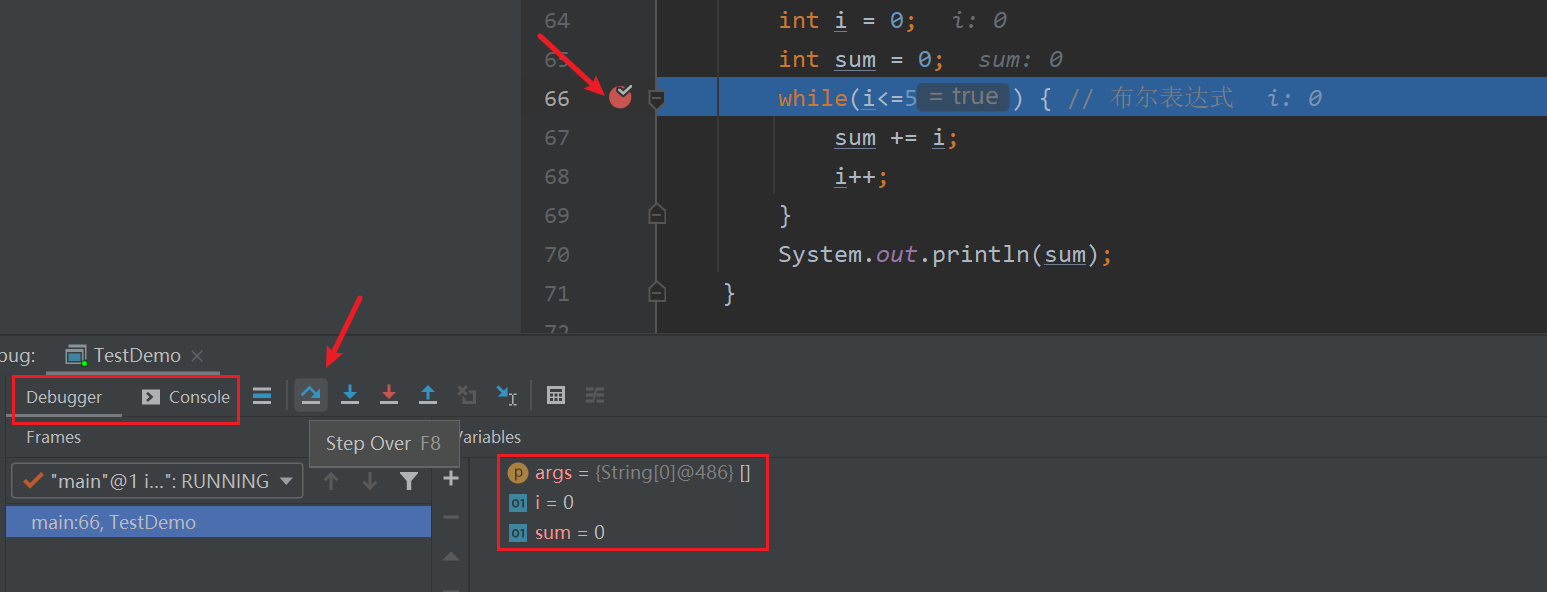
求阶乘
public class TestDemo {
public static void main(String[] args) {
int n = 5;
int i = 1;
int ret = 1;
while(i <= n) {
ret *= i;
i++;
}
System.out.println(ret); // 120
}
求阶乘和
public class TestDemo {
public static void main(String[] args) {
int j = 1;
int sum = 0;
while(j <= 5) {
int i = 1;
int ret = 1;
while (i <= j) {
ret *= i;
i++;
}
sum = sum + ret;
j++;
}
System.out.println(sum);
}
continue
public class TestDemo {
public static void main(String[] args) {
// 既能被3整除,也能被5整除
int i = 1;
while(i <= 100) {
if(i % 15 != 0) {
i++;
continue;
}
System.out.println(i);
i++;
}
}
}
3、for
public class TestDemo {
public static void main(String[] args) {
// 快捷方式:fori回车
for (;true;) {
System.out.println("111"); // 死循环
}
}
/**
* Created with IntelliJ IDEA.
* Description:
* User: ${USER}
* Date: ${YEAR}-${MONTH}-${DAY}
* Time: ${TIME}
*/
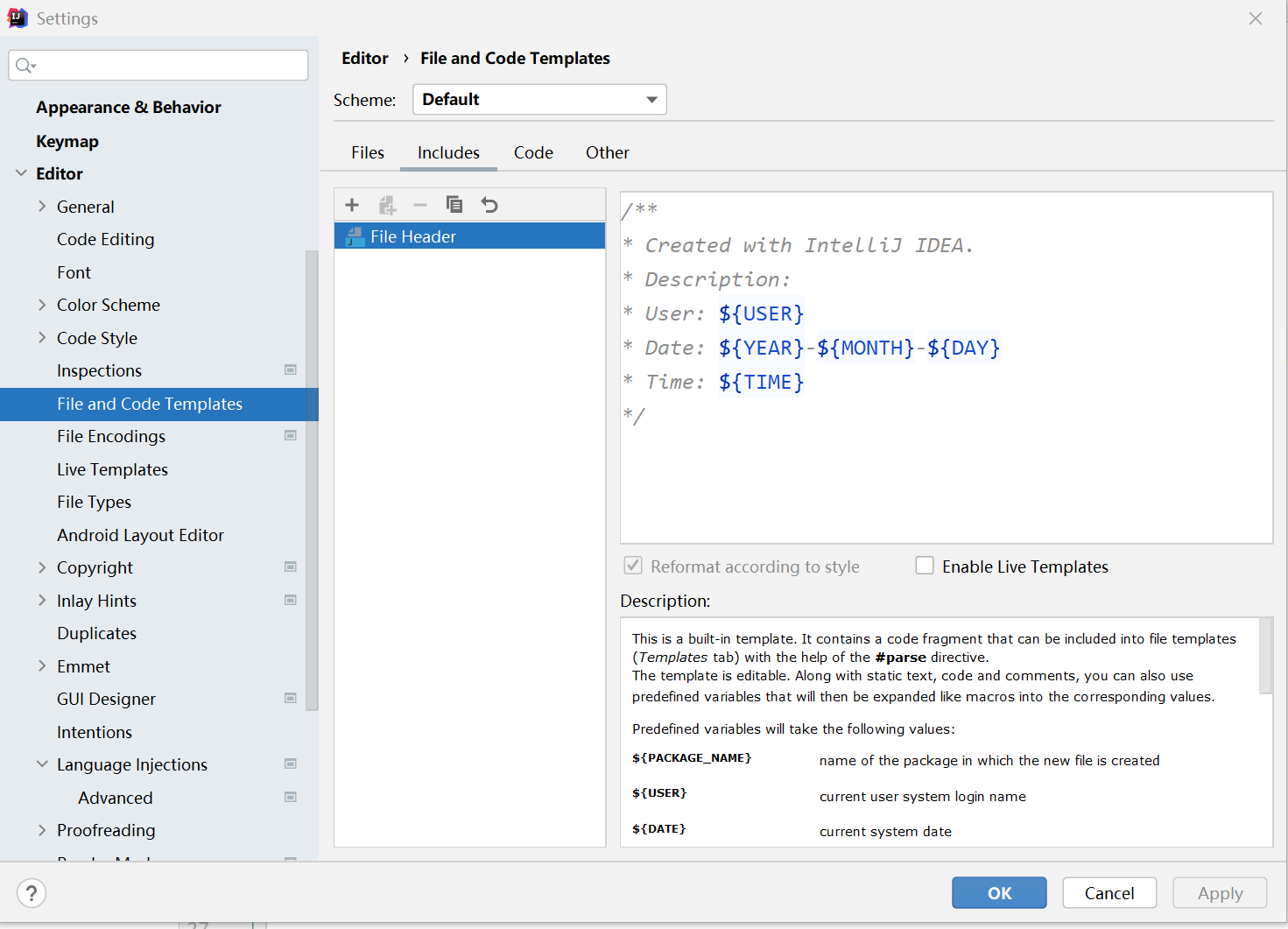
jdk
JDK 8:Java SE 8

环境变量
1、新建系统变量 java_home
JAVA_HOME
C:Program FilesJavajdk1.8.0_301
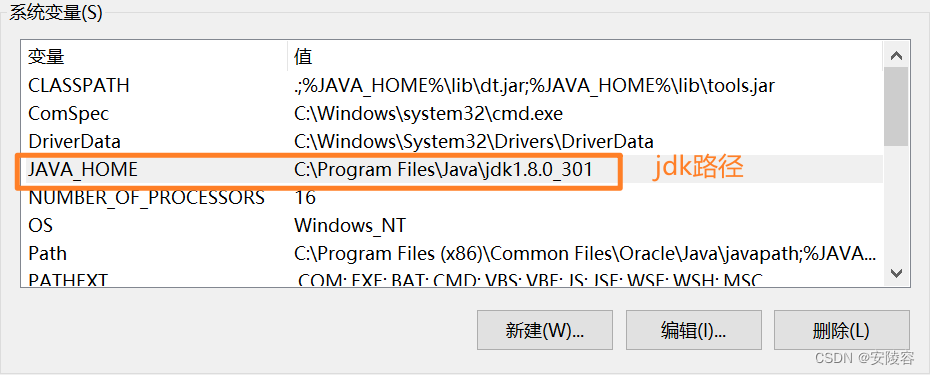
2、Path 后
%JAVA_HOME%bin

3、添加 classpath
CLASSPATH
.;%JAVA_HOME%libdt.jar;%JAVA_HOME%libtools.jar

验证:
cmd 命令:java -version

idea
jetbrains
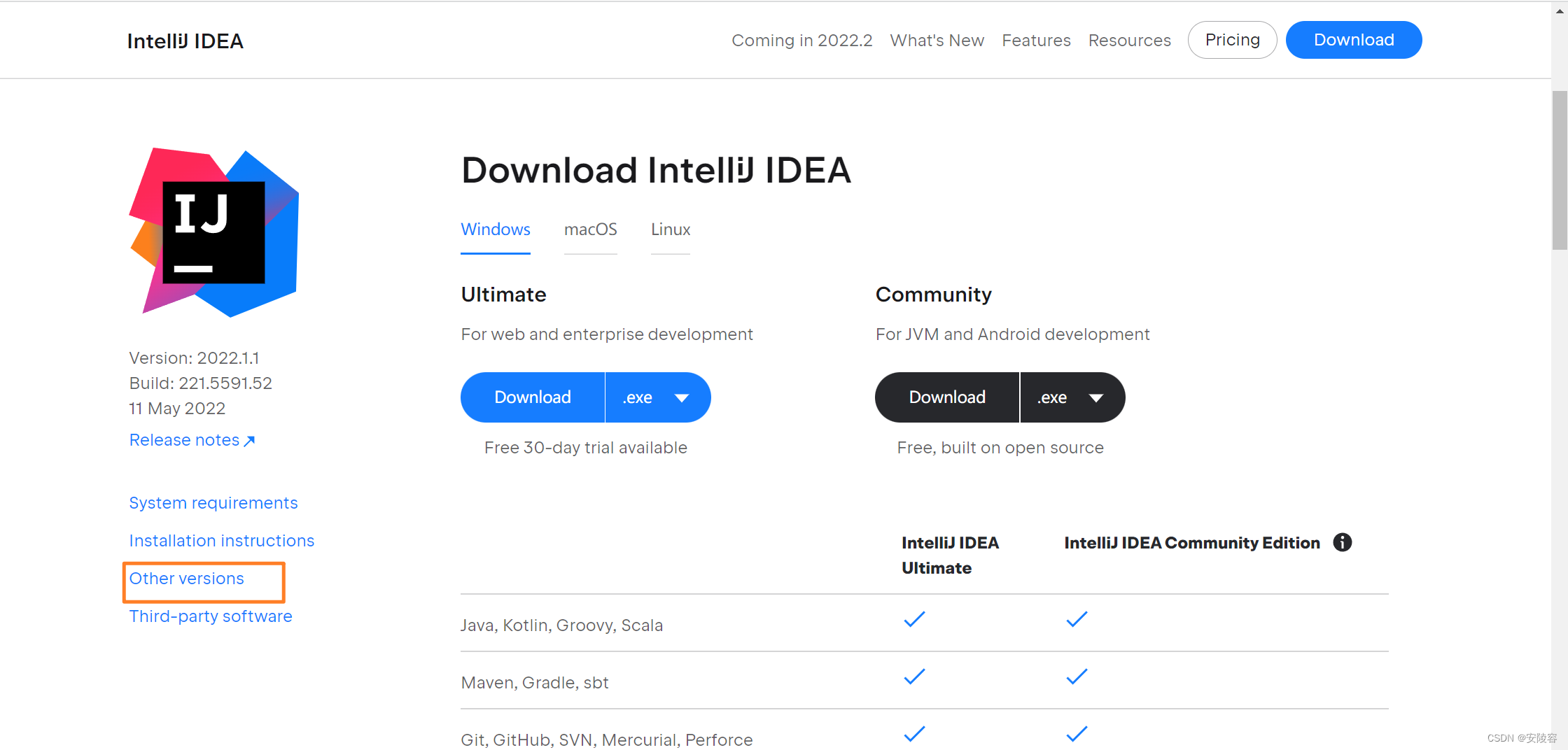

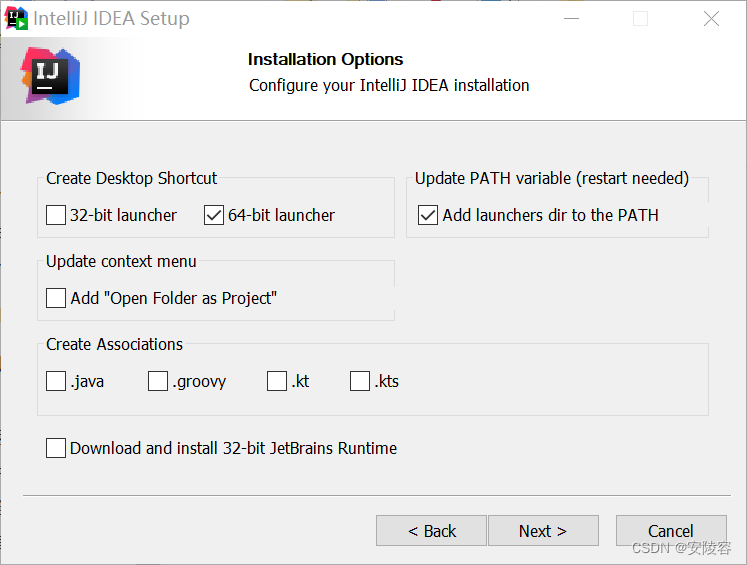


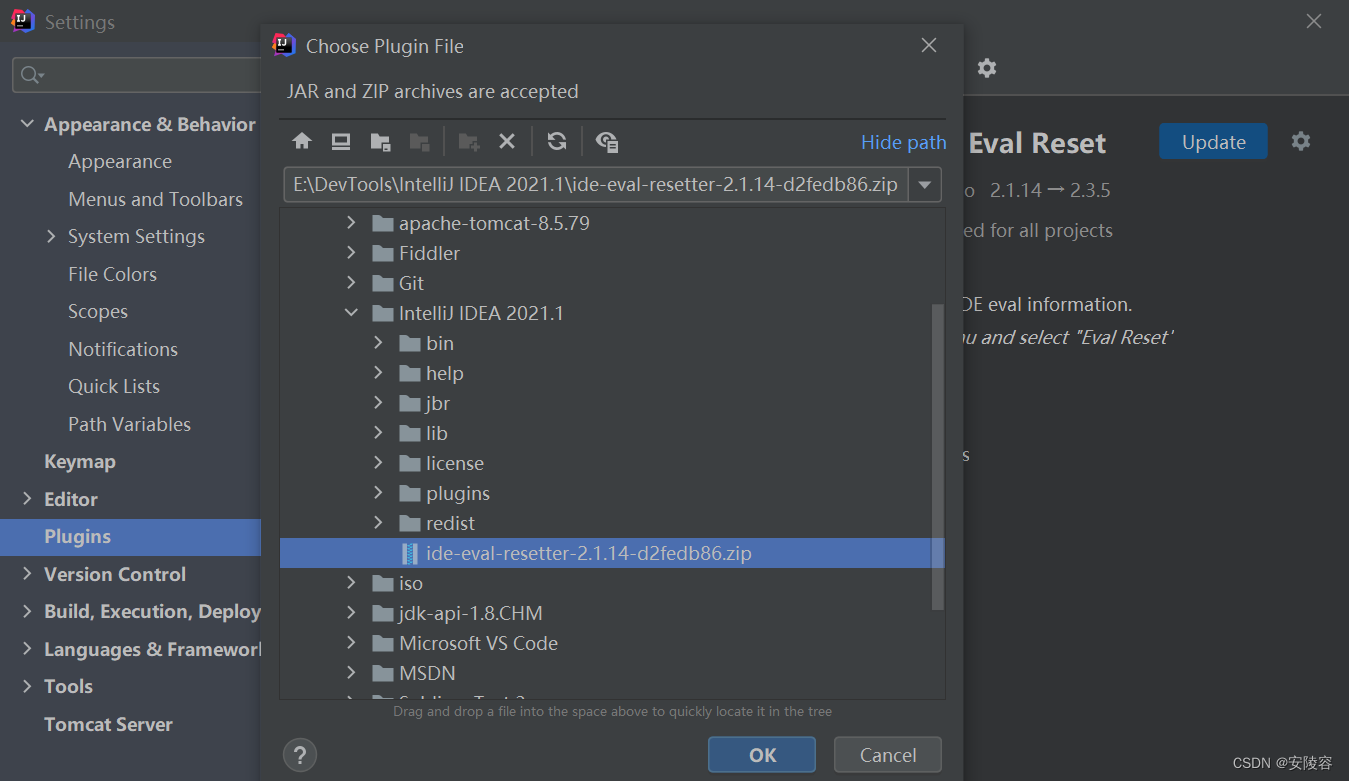
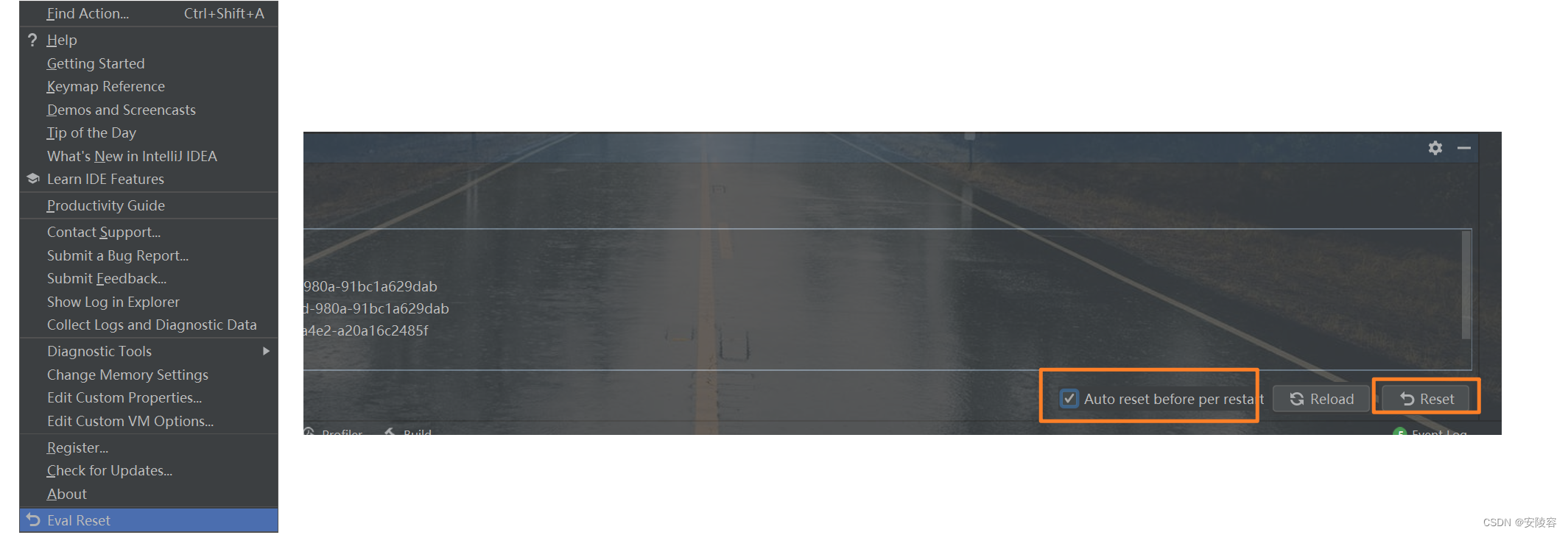
2、设置
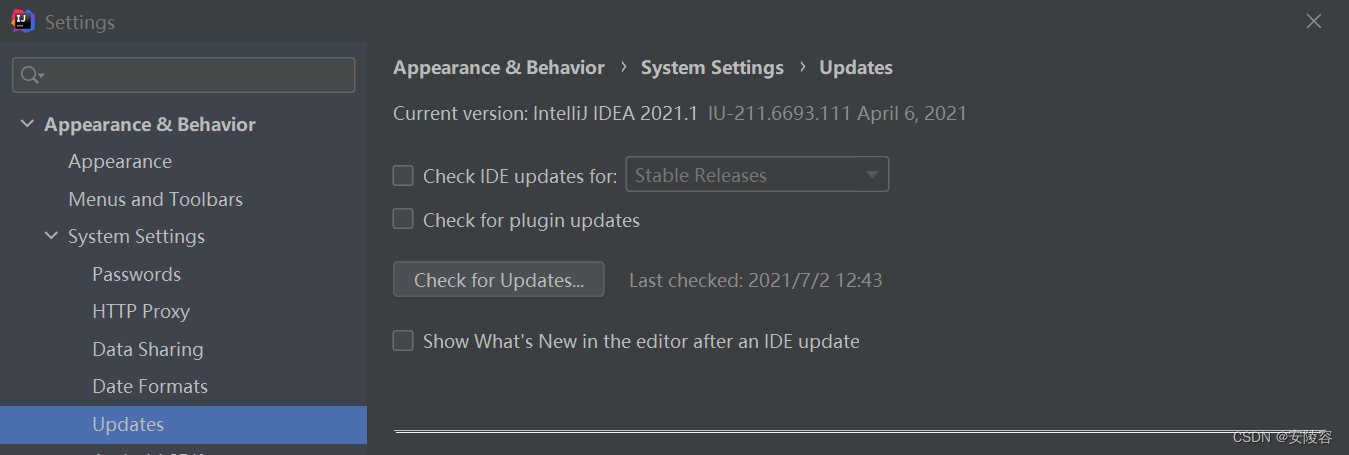

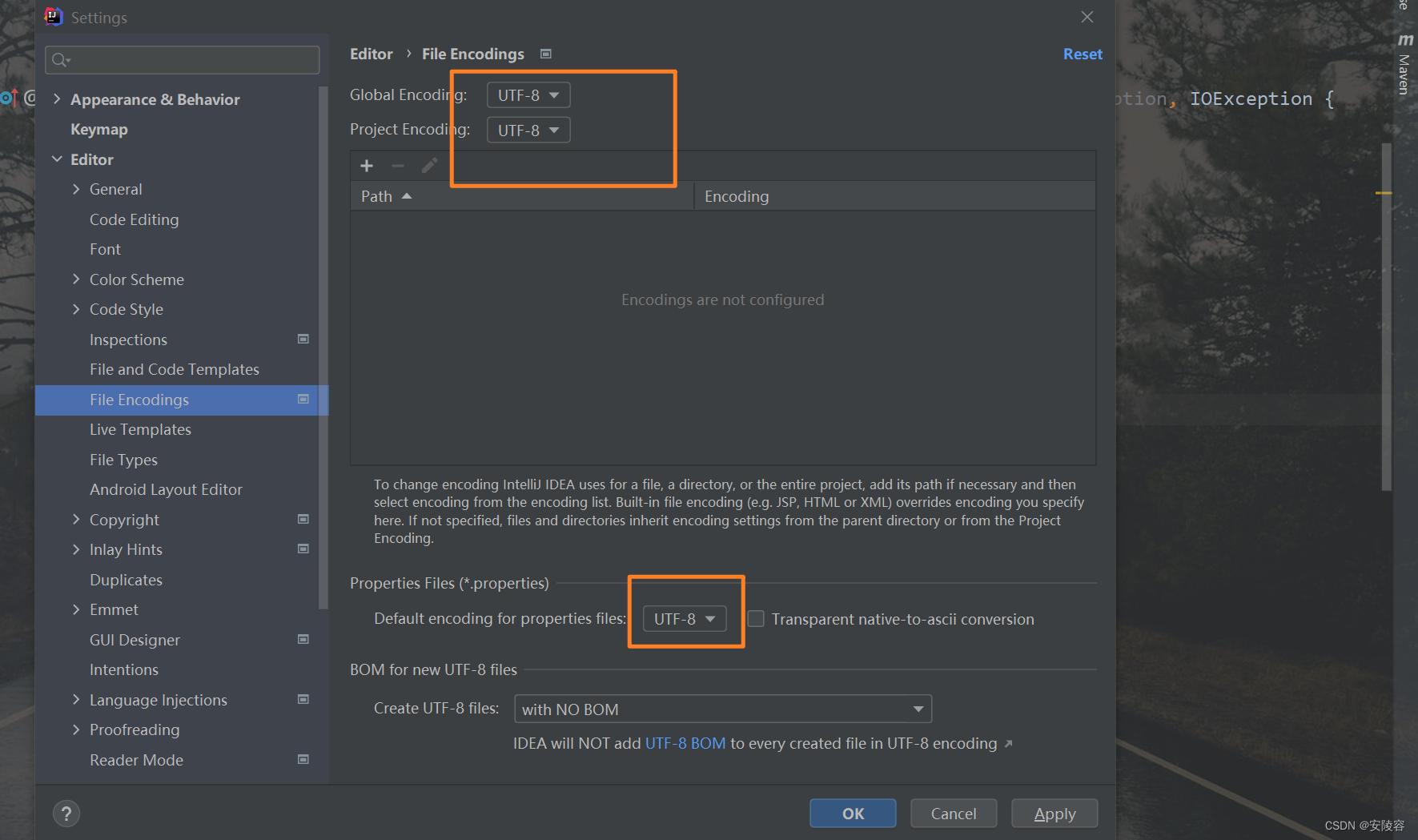

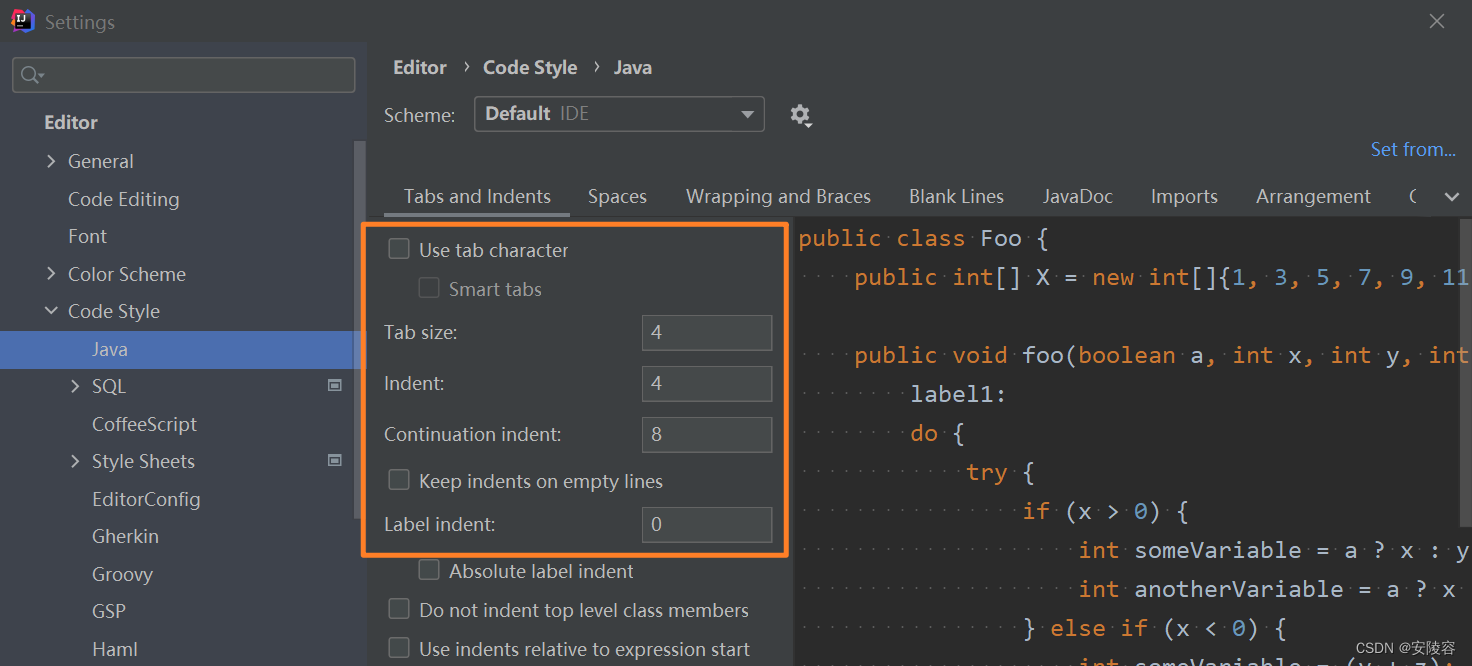
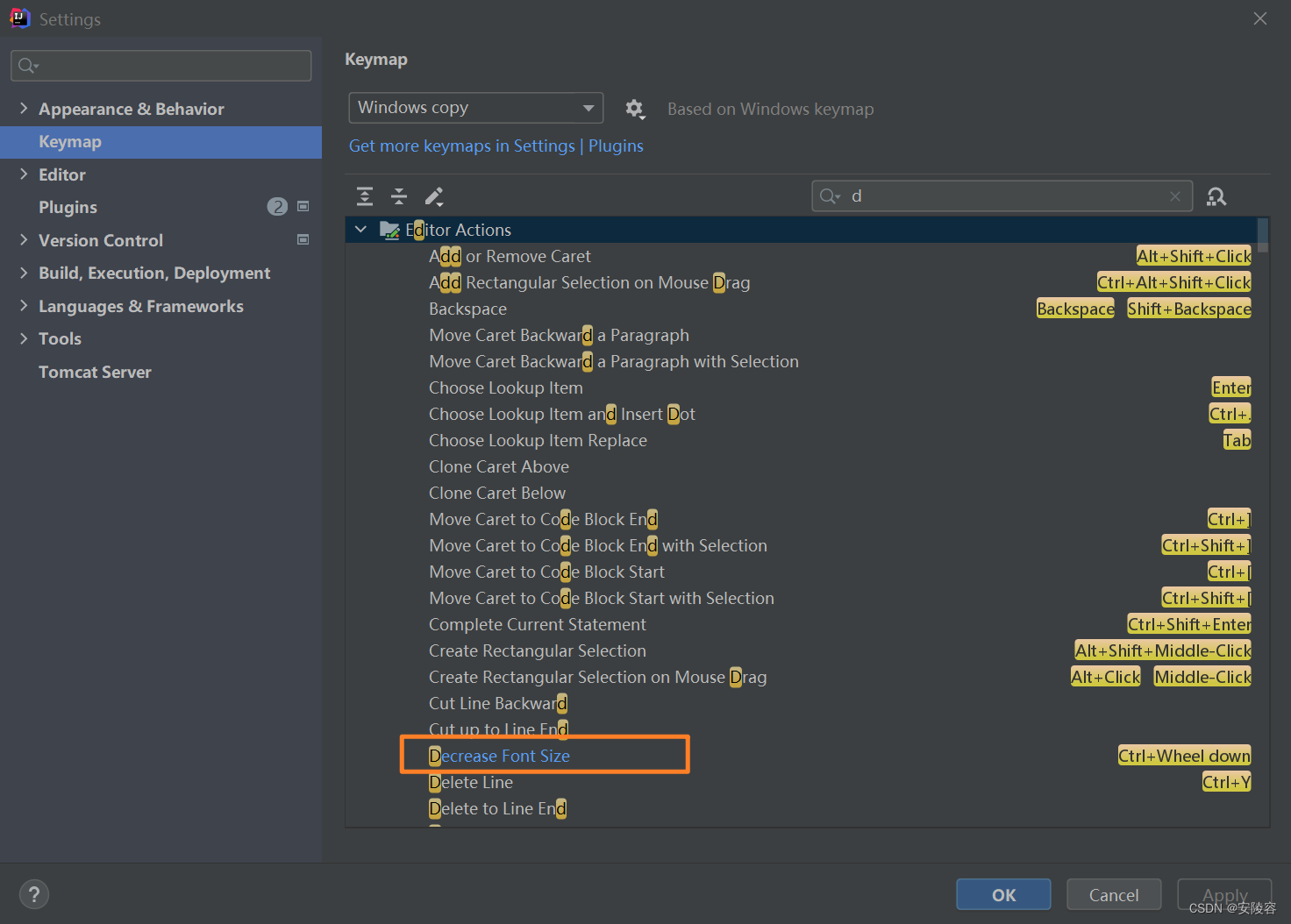
快捷键
Ctrl+Alt+I,将选中的代码进行自动缩进编排
快捷键:普通搜索替换:Ctrl+F和Ctrl+R;全局搜索替换:Ctrl+Shift+F和Ctrl+Shift+R;
WIN + AIT + INS 新建文件,可搜索
Ctrl + AIT + V 最近的变量输出
AIT + V 自动生成变量
ctrl + shift + z 反撤销
最后
以上就是不安柠檬最近收集整理的关于JavaSE01、如何写一个Java代码Javajdkidea的全部内容,更多相关JavaSE01、如何写一个Java代码Javajdkidea内容请搜索靠谱客的其他文章。








发表评论 取消回复